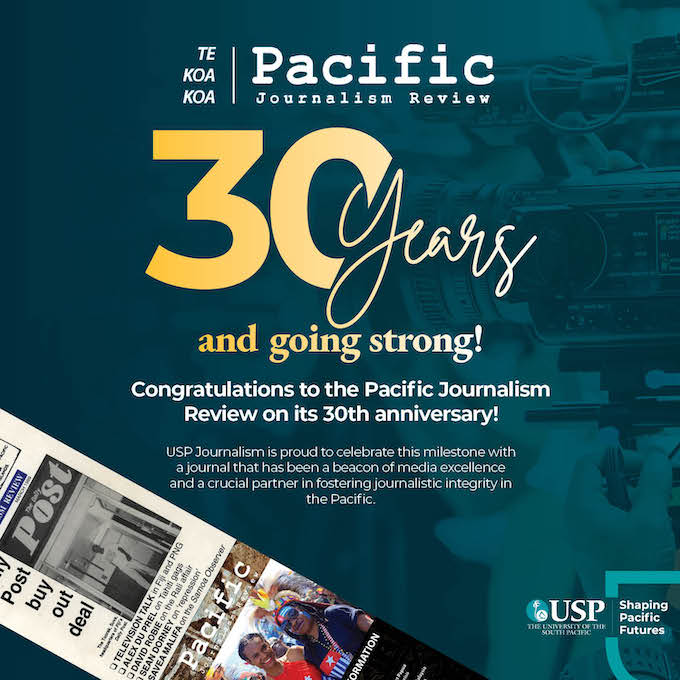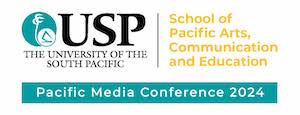
By Mark Pearson
Journalists, publishers, academics, diplomats and NGO representatives from throughout the Asia-Pacific region will gather for the 2024 Pacific International Media Conference hosted by The University of the South Pacific in Suva, Fiji, next month.
A notable part of the conference on July 4-6 will be the celebration of the 30th anniversary of the journal Pacific Journalism Review — founded by the energetic pioneer of journalism studies in the Pacific, Professor David Robie, who was recently honoured in the NZ King’s Birthday Honours list as a Member of the New Zealand Order of Merit.
I have been on the editorial board of PJR for two of its three decades.
- READ MORE: PJR to celebrate 30 years of journalism publishing at Pacific Media 2024
- Other Pacific Media Conference reports
- Dr Lee Duffield on 20 years of PJR
- Other Mark Pearson media law blog items

As well as delivering a keynote address titled “Frontline Media Faultlines: How Critical Journalism can Survive Against the Odds”, Dr Robie will join me and the current editor of PJR, Dr Philip Cass, on a panel examining the challenges faced by journalism journals in the Global South/Asia Pacific.
We will be moderated by Professor Vijay Naidu, former professor and director of development studies and now an adjunct in the School of Law and Social Sciences at the university. He is also speaking at the PJR birthday event.
In addition, I will be delivering a conference paper titled “Intersections between media law and ethics — a new pedagogy and curriculum”.
Media law and ethics have often been taught as separate courses in the journalism and communication curriculum or have been structured as two distinct halves of a hybrid course.
Integrated ethics and law approach
My paper explains an integrated approach expounded in my new textbook, The Communicator’s Guide to Media Law and Ethics, where each key media law topic is introduced via a thorough exploration of its moral, ethical, religious, philosophical and human rights underpinnings.
The argument is exemplified via an approach to the ethical and legal topic of confidentiality, central to the relationship between journalists and their sources.

After defining the term and distinguishing it from the related topic of privacy, the paper explains the approach in the textbook and curriculum which traces the religious and philosophical origins of confidentiality sourced to Hippocrates (460-370BC), via confidentiality in the priesthood (from Saint Aphrahat to the modern Catholic Code of Canon Law), and through the writings of Kant, Bentham, Stuart Mill, Sidgwick and Rawls until we reach the modern philosopher Sissela Bok’s examination of investigative journalism and claims of a public’s “right to know”.
This leads naturally into an examination of the handling of confidentiality in both public relations and journalism ethical codes internationally and their distinctive approaches, opening the way to the examination of law, cases and examples internationally in confidentiality and disclosure and, ultimately, to a closer examination in the author’s own jurisdiction of Australia.
Specific laws covered include breach of confidence, disobedience contempt, shield laws, whistleblower laws and freedom of information laws — with the latter having a strong foundation in international human rights instruments.
The approach gives ethical studies a practical legal dimension, while enriching students’ legal knowledge with a backbone of its philosophical, religious and human rights origins.
Details about the conference can be found on its USP website.
Professor Mark Pearson (Griffith University) is a journalist, author, academic researcher and teacher with more than 45 years’ experience in journalism and journalism education. He is a former editor of Australian Journalism Review, a columnist for 15 years on research journal findings for the Pacific Area Newspaper Publishers’ Association Bulletin, and author of 13 books, including The Communicator’s Guide to Media Law and Ethics — A Handbook for Australian Professionals (Routledge, 2024). He blogs at JournLaw.










































